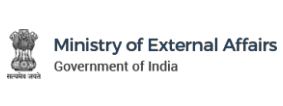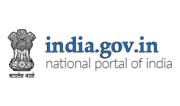Menu
- Home
- About us
- Contact Us
- Consular Services
- Discontinuation of walk-in consular services
- Visa Services
- Passport Services
- Overseas Citizen of India (OCI) Card
- Conversion of PIO card to OCI card
- OCI Card Reissue Guidelines
- Miscellaneous-Attestation Services
- Renunciation of Indian Citizenship
- Global Entry Program (GEP) For Indian Nationals
- Emergency Travel Document (Emergency Certificate-EC)
- Consular Assistance
- VFS Helpline Numbers
- Emergency Contact Numbers
- India U.S. Relations
- Media / Culture
- Education
- Education Wing
- Guidelines for Indian Students in the United States
- Registration of Indian Students in USA
- Inviting applications for 'International Hindi Course' by the Central Institute of Hindi, India
- Fulbright Scholarships
- The Quad Fellowship
- Guidelines for issue of No Objection Certificate / Visa for students proceeding to India on Fulbright Scholarship residing under the jurisdiction of Embassy of India, Washington D.C.
- Financial Terms and Conditions for Scholarships handled by ICCR.
- ICCR Scholarship
- Equivalency certificate of academic qualification
- Study in India
- Advisory/Information for students desirous of pursuing medical studies abroad
- Information on various aspects of US Legal system for incoming Indian students
- Public Notices/ Alerts
- Community Affairs
- How to address issues related to Marriages of Indian nationals to Overseas Indians
- Bill on NRI Marriages
- Procedure for sending/ forwarding Court Order/ Summons
- Legal and other provisions in foreign countries on Indian women cheated/abandoned/abused by Overseas Indian Spouses
- Officer-in-charge
- FAQs on Marital disputes involving NRI/PIO spouses
- प्रायः पूछे जाने वाले प्रश्न : "भारतीय महिलाओं का विवाह







